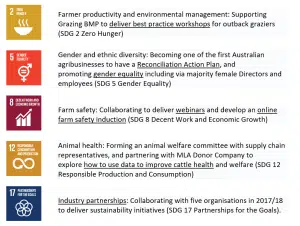Food glorious food!
These uncertain times have made many of us rekindle our appreciation for a thing that some take for granted and many go without: food.
In a moment like this, it is more important than ever to recognise the need to support our food heroes – farmers and workers throughout the food system – who are making sure that food makes its way from paddock to plate even amid disruptions as unprecedented as the current COVID-19 crisis.
World Food Day is calling for global solidarity to help all populations, and especially the most vulnerable, to recover from the crisis, and to make food systems more resilient and robust so they can withstand increasing volatility and climate shocks, deliver affordable and sustainable healthy diets for all, and decent livelihoods for food system workers.
Because everyone across our food chain has an important role to play – and that means you too!
Consumers are more than just eaters; we also have the power to influence what is produced through healthy food choices, which in turn contributes to more sustainable food systems.
This will require new opportunities offered through digitalization and e-commerce, but also more sustainable agricultural practices that preserve the Earth’s natural resources, our health, and the climate.
At OBE Organic, we’ve committed to addressing these key issues by being the first, and at this stage the only Australian Beef company to join the world’s largest corporate sustainability initiative, the UN Global Compact.
Collaboration is especially important for us at OBE Organic to continually improve our work, and we are always looking for businesses who want to partner with an organic beef supply chain that’s serious about sustainability. If this is you, get in touch!
Key Food Facts
- Approximately 14% of food produced for human consumption is lost each year between the stages where it is grown or raised up to when it reaches the wholesale market. More food is wasted at the retail food and consumer stages.
- Over 3 billion people in the world lack access to internet and most of them live in rural and remote areas. Smallholder farmers need greater access to finance, training, innovation and technology to improve their livelihoods.
- 2 billion people experience moderate or severe food insecurity, meaning they have difficulty in regularly accessing enough nutritious food.
- The global population is expected to reach almost 10 billion by 2050, which will significantly increase the demand for food.
- If our food systems are not transformed, undernourishment and malnutrition will greatly increase by 2050. This could increase more if there is further deterioration in income inequality, employment or basic access to services.
- The impact of malnutrition in all its forms is estimated at a cost of USD 3.5 trillion per year.










